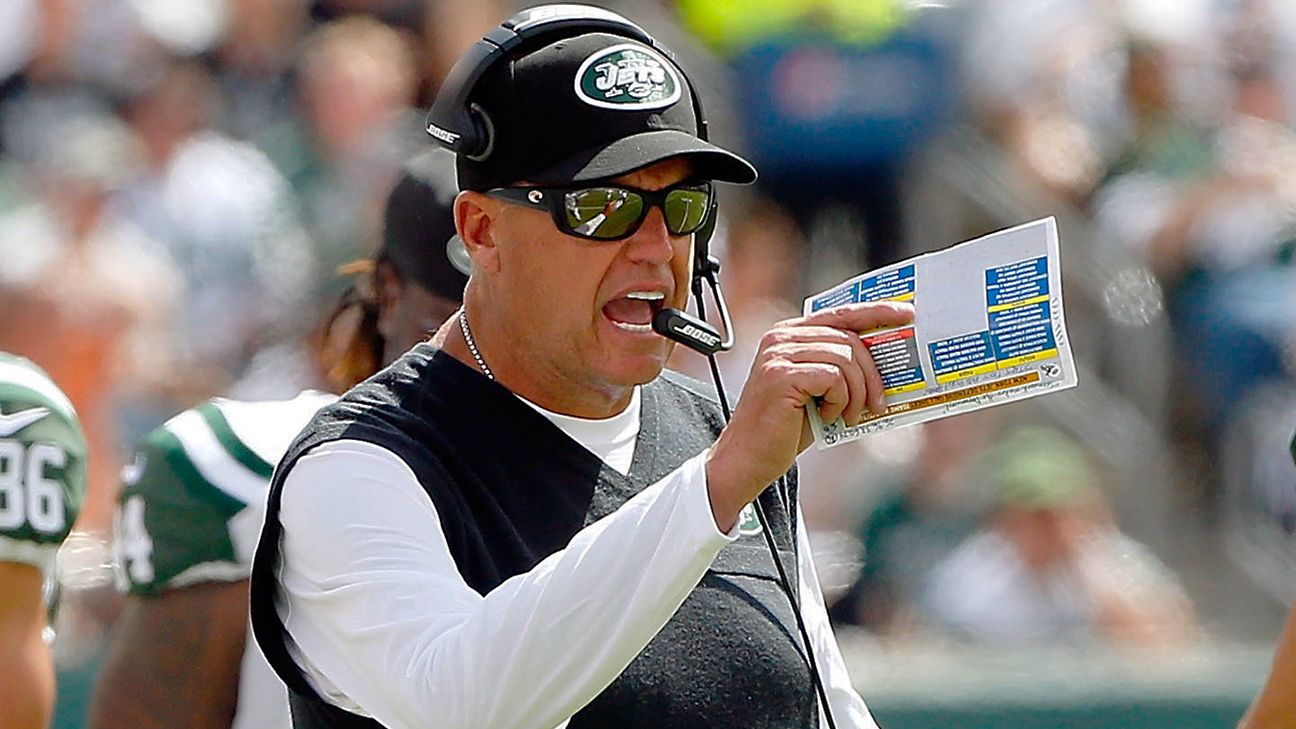
Aishwarya Kumar, ESPN.comDec 19, 2024, 11:10 AM ET
All around her, players are dressed in red and white. Not Lexi Rodriguez. She wears all black.
Directly across the net from Nebraska's 5-foot-5 libero stands Wisconsin right-side hitter Anna Smrek. She's the daughter of a former two-time NBA champion. She stands 6-foot-9 and can touch higher than 11 feet when she jumps. The net, which stands at 7 feet, 4 1/8 inches, is no match.
Next to Smrek is Wisconsin middle blocker CC Crawford. She stands 6-foot-3. Her dad ran Division I track. Her mom played Division I basketball. Her brother is a defensive lineman at Iowa. Blocking is her forte.
Smrek, Crawford and Wisconsin are down by a set and trailing 5-2. They know they need points -- and fast.
Rodriguez knows it too. She knows the Wisconsin hitters will be swinging their arms high and fast and hard, trying to slam the volleyball to the floor on Nebraska's side of the net. It's Rodriguez's job to keep that from happening.
Merritt Beason goes back to serve. Rodriguez guards the sideline as Smrek rises and swings, but the Nebraska block deflects it back to Beason. After some quick back-and-forth, Crawford tips the ball gently over the Nebraska block toward the front corner of the court. Rodriguez takes one, two, three quick steps. She reaches her left arm out and dives, popping up the ball inches before it lands on the court. Rodriguez slides into the referee stand and then scrambles back into position. She's ready for whatever comes next.
It's Smrek again. This time she pokes the ball into a vacant area of the Nebraska court, but Rodriguez slides on her knees to dig it. She gets back up and backpedals to guard her turf.
Smrek isn't finished.
She approaches with intention this time. She slams the ball toward the back of the court. Rodriguez reaches her arms out to her right side and falls as she deflects the ball back to Wisconsin's side of the net. Rodriguez rolls over on her belly and springs back to her feet just in time to see her own middle blocker, Andi Jackson, push the volleyball to Wisconsin's side of the net. Point Nebraska.
Rodriguez slaps the floor in celebration, punches the air with her fist and joins her teammates in a huddle. She played the ball five times in a rally that lasted 44 seconds.
She's done her job.
"Lexi takes up so much of her side of the court," said Olympic gold medalist and former Nebraska libero Justine Wong-Orantes. "And you see her flying around the court, and that creates longer rallies and tires out the opponent because you feel like you cannot score on a libero like Lexi."
Rodriguez is one of many liberos in NCAA volleyball who are changing the way the game is played. Introduced to NCAA play in 2002, liberos inject excitement. They are back-row defensive specialists who are not allowed to attack above the net or block. They wear a different color of jersey. They pass with aplomb, extend rallies, stymie hitters. They dive on the court, they sacrifice their bodies, they give their teammates opportunities to score. They blend athleticism with anticipation to keep the ball from hitting the floor.
"Lexi is always in the right place -- you see a lot of defensive players [who] are a little flashy and out of position and then make a really spectacular play," Wong-Orantes said. "But I feel that Lexi is always just in the right spot, so she doesn't need to really make this tremendous dig. I think [her] ability to read the game is [elite]."
Rodriguez is one of the four finalists for AVCA national player of the year and could become the first libero to win the award. She's also eight digs away from tying Wong-Orantes' Nebraska record of 1,890. She might make it look effortless. But being a libero takes no small amount of talent. Not to mention courage.
Wong-Orantes recalls a painful game against Wisconsin when she was a freshman. The Badgers, she says, served every ball at her, some hitting her on her shoulders, some on her chest, and others ricocheting off her extended arms. To protect her, coach John Cook moved her out of the serve receive position and hid her behind the hitters.
"That for me was the most demoralizing feeling because you're a libero, you're supposed to be good at passing, and to have to be hidden in the formation was shameful, and that was really tough to break out of that," Wong-Orantes said.
The position is not for the faint of heart. Gather 'round the campfire. The liberos at the final four all have harrowing tales to tell.
Louisville's Elena Scott, who was named AVCA first-team All-American, says it's commonplace to get hit in the chest or even the throat during practice and it "kind of, like, knocks the wind out of you."
But that's run-of-the-mill. She has a fresh horror story straight from the Cardinals' second-round win over Northern Iowa.
The Cardinals trailed 2-1 going into the fourth set. The ball was traveling to Scott's right. She dove; her lone objective was to keep the ball alive. Her teammate and outside hitter Charitie Luper had the exact same idea. She lunged to her left. The Cardinals collided, and Scott's arms got stuck underneath Luper's body. She landed on her right side, but she felt a pain in the left side of her lower back.
"There was a sharp, sharp pain and burning, and it did not feel good at all," the 5-foot-9 Scott said. "I stopped for a little bit, and then I was like, 'OK, like, push through it, because it's a really big match.'"
She knew immediately what it was. She'd suffered from lower back pain through her high school playing years, and the collision triggered an old injury. For the rest of the fourth set and the fifth, which the Cardinals won 22-20, Scott played through pain. She finished the match with a season-high 26 digs. Immediately afterward, she ran to her physio, who iced her back and gave her a massage. The pain remains as Louisville prepares for ACC rival Pitt in the national semifinals. Scott has been prepping her body -- with needling, massages and scraping -- before practices and matches.
Pitt libero Emmy Klika relates to the dangers of diving. During the Panthers' early-season match against Pepperdine, Klika, who was named to the 2024 AVCA East Coast Region team, dove for a ball and slammed into teammate Valeria Vazquez Gomez. She heard her neck crack as she landed on her belly.
"I was on the ground and I was like, 'What did I just do to myself?'" Klika said. "Because that's part of being a libero, the fearless attitude, and sometimes it's to a point where you don't want to hesitate for the ball, but then you run into someone. 'Oh, my gosh, did I just hurt myself?'"
The 5-foot-7 Klika, who has 853 career digs and counting, ended up being fine. But she'll always remember the way her heart raced in fear.
Penn State junior libero Gillian Grimes, who was named second-team All-Big Ten this season, reflected on a story from her club days. She vividly remembers playing a Texas team in a tournament in Indianapolis. She saw the opposing team's outside hitter jump high and tower over the net. She saw her swing.
"She pounds it right in my face," said the 5-foot-6 Gillian, who has a team-high 488 digs this season heading into the national semifinal against Nebraska. "That definitely hurt. I thought I was concussed, but I mean, you just keep playing."
She shook her head, brushed hair out of her face and got ready to dig the next ball.
Even Rodriguez, who can make all the digging and diving look effortless, concedes fear is part of life as a libero.
"There's always times when there's an open, open net and a big hitter," she says. "Those are always the scariest."














































